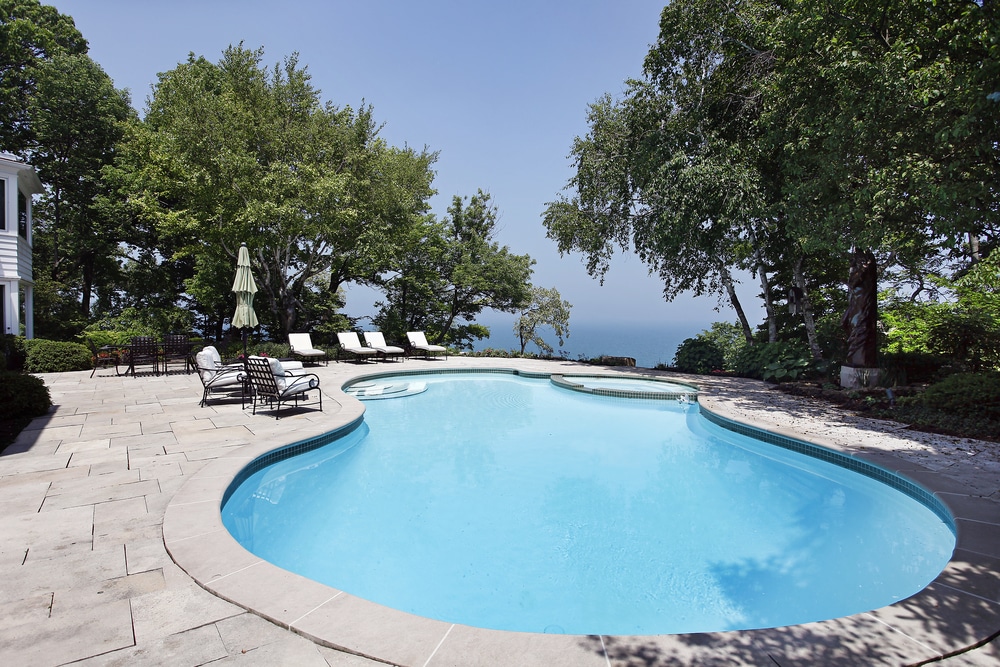When you’re a swimming pool owner who works with the swimming pool service professionals from SwimRight Pool Service & Repair in Scottsdale, Arizona you may not ever have given any thought to what is calcium hardness in the pool water. However, when you are a pool owner, it makes sense that you understand some of the nuances of water chemistry. When you’ve educated yourself on how to test water chemistry and how to understand the readings, you can take steps to correct chemical imbalances or to know when you need to call on us for an additional, or emergency, service visit.
If the calcium levels are too high in your swimming pool it can lead to corrosion of the pool’s metal finishings, cause scaly white build-up and leave rust stains. Calcium hardness can also create pinhole leaks in your pool equipment. Calcium also called calcium carbonate is a naturally occuring chemical that is the source of many headaches and pool water chemical upsets. Keeping the pool on a regular maintenance routine and testing the water chemicals will keep the calcium levels in check.
What is calcium hardness in the pool water?
As your swimming pool service contractor will explain, when there is an excess of calcium in the pool water, it is usually because of a larger issue with the overall water chemistry. Chemical imbalances in the water aren’t the only reasons for calcium hardness — it can occur because the water is too cold and it makes calcium levels more soluble.
High calcium levels are an issue BUT so are low calcium levels! High calcium levels are sometimes first noticed when the water looks cloudy and you start to see scaling on the pool walls. Working with a pool contractor will ensure the water chemistry doesn’t get so far out of balance that this occurs.
Oddly enough, water in the pool “wants” to be in balance. If the water doesn’t have enough calcium in it, the water will work to balance itself by drawing calcium from other sources and that could be from the pool plaster or the metal fittings in the pool.
If you’re a DIY-er when it comes to your pool maintenance, you will want to keep the calcium content in the 100-400 parts per million (PPM) range.
When you notice, or when your pool contractor notices, that the calcium levels are low adding a granular hardness increaser will help. Low calcium levels require adding a sequestering agent that will battle the impacts of the high metal and calcium content in the pool water. If you live in an area that has hard water, using a sequestering agent should be part of the maintenance routine.
Here are some calcium FAQs you need to know.
- Calcium is always present. Hardness is the way calcium levels in the water are measured.
- Calcium excess occurs when the water isn’t kept balanced. High pH and fluctuating temperatures speed up the levels.
- You can test for calcium levels with a traditional pool water test kit.
- If the calcium levels get too high and if you notice calcium build up you can remove it with a pumice stone. If the build up is on tiles you will want to use a less abrasive method — use vinegar and a scrub brush
Give us a call if you want to turn the cleaning and maintenance tasks for your pool over to a professional. Use your free time for swimming, not cleaning!


